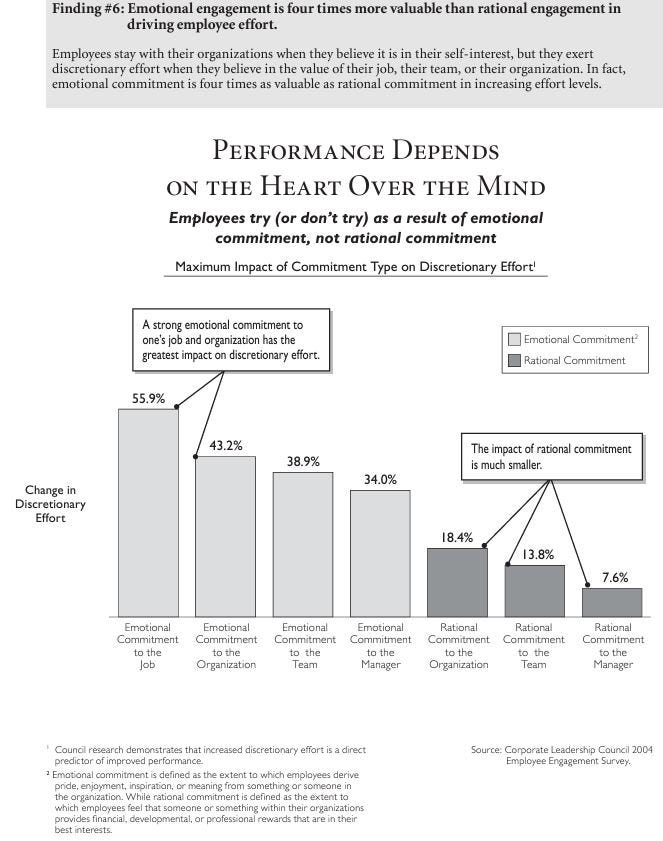Leadership is not merely about making decisions and guiding a team toward achieving goals; it also encompasses the responsibility of owning up to mistakes and reconciling with those affected. Sincere apologies from leaders can significantly impact an organization’s culture, employee morale, and overall business success. This article delves into the importance of leader reconciliation in business, the benefits of sincere apologies, and practical ideas for leaders on how to apologize effectively.
Sources for this Article:
Corporate Leadership Council. (2004). Driving performance and retention through employee engagement. Corporate Executive Board.
Edmondson, A. C. (1999). Psychological safety and learning behavior in work teams. Administrative Science Quarterly, 44(2), 350-383.
Friedman, R. A., Anderson, C., Brett, J. M., Olekalns, M., Goates, N., Lisco, C. C., & Tidd, S. T. (2004). The positive and negative effects of anger on dispute resolution: Evidence from electronically mediated disputes. Journal of Applied Psychology, 89(2), 369-376.
Goleman, D. (2000). Leadership that gets results. Harvard Business Review, 78(2), 78-90.
Kim, P. H., Ferrin, D. L., Cooper, C. D., & Dirks, K. T. (2004). Removing the shadow of suspicion: The effects of apology versus denial for repairing competence-versus integrity-based trust violations. Journal of Applied Psychology, 89(1), 104-118.
Apology Examples:
Good Apology: Jenna Marbles, a YouTuber, announced she was quitting from YouTube after she was admonished by the public for offensive content throughout her YouTube career. Whether you agree with canceling her or not, most people believe that her apology was sincere. The biggest part of her apology that many commented on was that she made direct actions to change her behavior which made the apology more authentic. The consensus throughout the internet also noted that her apology body language was authentic and not manipulative.
Bad Apology: Karl Marx to Friedrich Engels, who after learning that Frederich lost his common law ‘wife’ Mary Burns (20 years of cohabitation without marriage), replied in a letter with a small paragraph on how that was sad but finished the letter with two more large paragraphs discussing his financial concerns. Karl’s apology when responding to Frederich calling him out for his first letter was also another letter of Karl complaining about his life.
Both examples play out at different times but illustrate the structure of a good or bad apology. We will discuss that in depth in the subscriber area below, but people intuitively can sense authenticity or manipulation. The key to apologies is understanding how your audience will receive it. Choosing your words, believing in them, and ensuring that a good apology is designed to have a positive effect on the team, and not just you. There are reasons why leaders need to learn how to apologize at work and why they are important.
Some people believe that repentance is the only road to forgiveness. Conversely, some people believe that it is not necessary for forgiveness but it is the first step. No matter your opinion on forgiveness, we can all understand a sincere apology. We all know that reconciliation is a part of professional life and is necessary for moving forward. There are reasons why leaders need to learn how apologies work and why they are important.
The Importance of Leader Reconciliation.
Leaders are often viewed as the epitome of organizational values and standards. When they fail to acknowledge their mistakes, it can lead to a decline in trust and respect among team members. Conversely, leaders who take responsibility and apologize sincerely can foster a culture of accountability and transparency. According to a study by Goleman (2000), emotional intelligence, which includes the ability to recognize and manage one's own emotions and those of others, is crucial for effective leadership. Apologizing when wrong is a significant aspect of emotional intelligence, demonstrating humility and respect for others.
We have addressed trust in several other articles in our Leaders and Supporter group. I hope that you go back and read our articles and learn the techniques to become a better leader and supporter. Apologies are a critical component, after a wrongdoing, to restore trust. A study by Kim, Ferrin, Cooper, and Dirks (2004) found that apologies are a powerful tool for restoring trust. When leaders apologize sincerely, it can mitigate the negative effects of their actions and rebuild trust with employees.
Employees are more likely to stay engaged and loyal to an organization where leaders admit their mistakes. This is supported by research from the Corporate Leadership Council (2004), which indicates that high levels of trust in leadership correlate with higher employee engagement and retention rates. They also found that emotional commitment provided a maximum impact over rational commitment from Leaders. This reinforces that apologies must hold an emotional context over purely fact-based apologies.

In previous articles, we discussed how to create a constructive feedback environment in your workplace. Apologies reinforce those efforts through showing no one is above reproach or error. In most cases, mistakes are not the end of a career and everyone participates in the learning environment. Edmondson (1999) highlighted the concept of psychological safety, where team members feel safe to take risks and express themselves without fear of retribution. Leaders who apologize can create an environment of psychological safety, leading to improved team performance and innovation.
Apologies can also play a crucial role in conflict resolution. An apology can serve as the first step toward resolving disputes and fostering a collaborative work environment, as suggested by Friedman, Anderson, Brett, Olekalns, Goates, Lisco, and Tidd (2004). Their research focused on how anger impacts the workplace. Showing that appropriately directed anger in an apology could allow you to express emotions correctly. “Observed anger is likely to have greater effects on observers’ emotions when observers perceive the situation as unstable and pervaded by risk than when they perceive it as stable and secure” (Friedman, Anderson, Brett, Olekalns, Goates, Lisco, and Tidd, 2004).
Correct anger from a leader will also give authenticity to the apology. “Anger expressed by a high-status agent is likely to have a stronger influence on the target’s cognition and performance compared to anger expressed by a low-status agent” (Friedman, Anderson, Brett, Olekalns, Goates, Lisco, and Tidd, 2004). You might call this righteous indignation. A leader who utilizes empathy to help them understand the injustice they caused, with appropriate anger, will develop a more sincere apology and maximize influence toward positive outcomes.
Leaders and Supporters is a reader-supported publication. Subscribe below to learn 5 ways to conduct a better apology.
Subscribed
To finish this article, go to: https://open.substack.com/pub/thedavarkgroup/p/week-25-effective-apologies?r=385ucj&utm_campaign=post&utm_medium=web
















